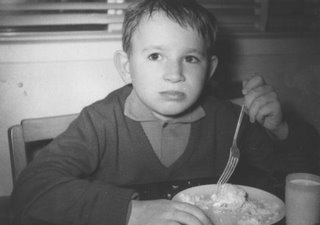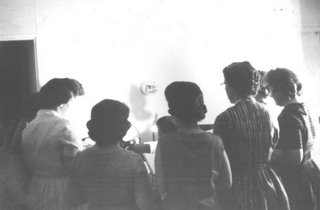 The U.S. Department of Defense operates a special unit called the Department of Defense Education Activity (DoDEA). The purpose of this unit is to develop and administer curricula and schools for the children of military families living on bases in the U.S. and serving in foreign countries. The standards of the DoDEA are not surpassed by any state or public schools, in my opinion.
The U.S. Department of Defense operates a special unit called the Department of Defense Education Activity (DoDEA). The purpose of this unit is to develop and administer curricula and schools for the children of military families living on bases in the U.S. and serving in foreign countries. The standards of the DoDEA are not surpassed by any state or public schools, in my opinion.Notice the photo, taken by me in Southern France, as my class enters the walled city of Carcassonne. We were on a four-day field trip. We were required to connect history to the present, to experience what we were learning, and to put it in a context that carried meaning into our future.
Military families have the opportunity to expose their children to the best resources in education. Education is paramount in all branches of the military, and anyone who takes advantage of the many resources offered, is rewarded with rank and responsibility.
Children can learn much more that is truly valuable than what they are exposed to in schools today. Of course, in DoDEA schools, parents are expected to be involved in their children's school activities. The best education I received during all my years of studying, including earning a masters degree at an Ivy League school, were the two years I attended a DoDEA school in France.
Anyone who wants the best for their children would be advised to consider a military family life that exposes the children to the DoDEA system throughout their education.
My thoughts for today.
Sheila Witherington



 remember my French piano teacher who was the organist at this Catholic church. Behind this cathedral, the flea market flourished every Saturday. I still remember the smells, sights, sounds, and movements. It instilled in me an early appreciation for diversity and a sense of longing to see more of the world. That's a good thing. Military life does that to a child. That's a good thing.
remember my French piano teacher who was the organist at this Catholic church. Behind this cathedral, the flea market flourished every Saturday. I still remember the smells, sights, sounds, and movements. It instilled in me an early appreciation for diversity and a sense of longing to see more of the world. That's a good thing. Military life does that to a child. That's a good thing. 
